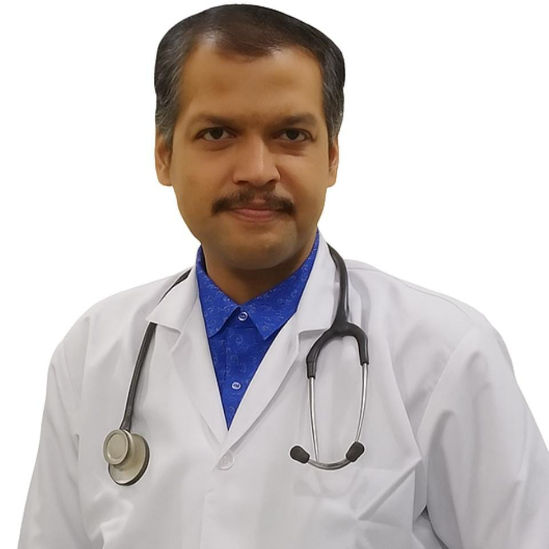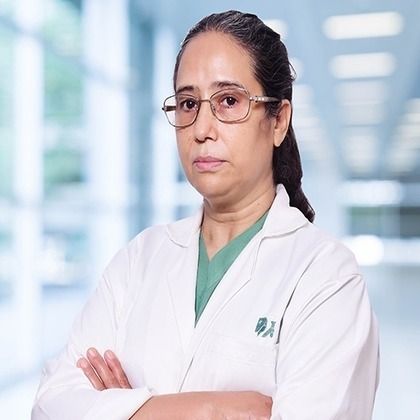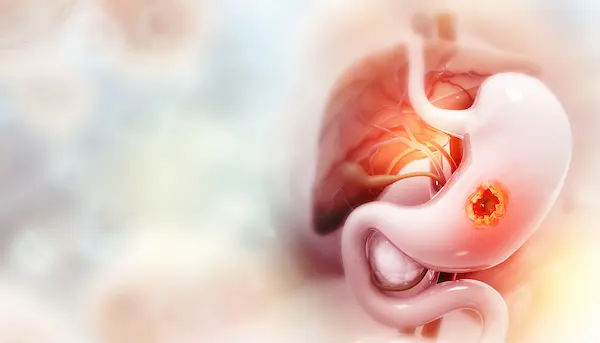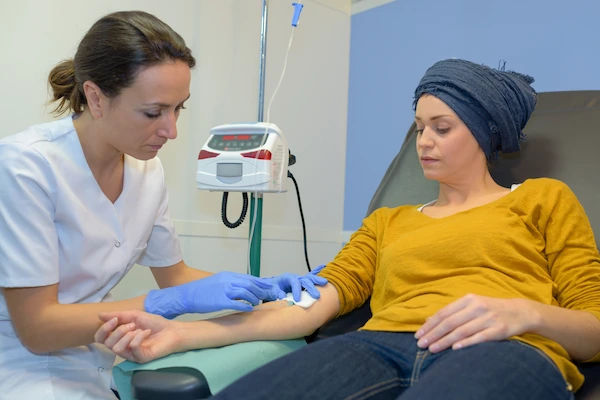Chemotherapy Options for Liver Cancer Treatment
Know all about chemotherapy, liver cancer treatment, medications, possible side effects, effectiveness of medication and more.


Introduction
Liver cancer is a serious condition that requires prompt and effective treatment. Among the various treatment options available, chemotherapy plays a crucial role in managing the disease, especially in advanced stages. If you or a loved one has been diagnosed with liver cancer, understanding chemotherapy options can help you make informed decisions about your care.
This article explains chemotherapy for liver cancer in simple terms—what it is, how it works, its benefits, side effects, and ways to manage them. We’ll also discuss lifestyle tips and when to seek medical help.
What Is Chemotherapy for Liver Cancer?
Chemotherapy (or "chemo") uses powerful drugs to kill cancer cells or stop them from growing. For liver cancer, chemotherapy may be given in different ways:
1. Systemic Chemotherapy – Drugs are given through the bloodstream (usually via IV or pills) to reach cancer cells throughout the body.
2. Hepatic Artery Infusion (HAI) – Chemo is delivered directly into the liver through its main blood vessel (hepatic artery), targeting the tumor more precisely.
3. Chemoembolization (TACE) – A combination of chemotherapy and blocking the tumor’s blood supply to shrink it.
Consult Top Specialists for Personalised Tips
When Is Chemotherapy Used for Liver Cancer?
Chemotherapy is often recommended when:
The cancer is advanced and cannot be removed by surgery.
The tumor is too large for other treatments like radiation or ablation.
The cancer has spread to other parts of the body (metastasis).
Other treatments (like targeted therapy or immunotherapy) are not suitable.
Common Chemotherapy Drugs for Liver Cancer
Some commonly used chemotherapy drugs for liver cancer include:
5-Fluorouracil (5-FU)
Cisplatin
Doxorubicin
Oxaliplatin
Gemcitabine
These may be used alone or in combination, depending on the cancer stage and patient’s overall health.
How Effective Is Chemotherapy for Liver Cancer?
While chemotherapy can help slow cancer growth and relieve symptoms, it may not always cure liver cancer. Its effectiveness depends on:
The cancer stage at diagnosis.
The patient’s liver function and overall health.
How well the body responds to treatment.
Your doctor will monitor your progress through scans and blood tests to adjust treatment as needed.
Possible Side Effects of Chemotherapy
Chemotherapy affects both cancer cells and healthy cells, leading to side effects. Common ones include:
Fatigue (extreme tiredness)
Nausea and vomiting
Loss of appetite
Hair loss
Low blood cell counts (increased infection risk, anemia, easy bruising)
Mouth sores
Most side effects are temporary and can be managed with medications, diet changes, and rest.
Tips for Managing Chemotherapy Side Effects
1. Nausea & Vomiting – Eat small, frequent meals. Avoid strong smells. Ask your doctor for anti-nausea medications.
2. Fatigue – Rest when needed, but light exercise (like walking) can help boost energy.
3. Diet & Nutrition – Eat protein-rich foods (eggs, lentils, yogurt) to help recovery. Stay hydrated.
4. Infection Prevention – Wash hands frequently, avoid crowds, and report fever or unusual symptoms immediately.
5. Emotional Support – Talk to a counselor, join a support group, or share your feelings with loved ones.
Lifestyle Changes to Support Treatment
The lifestyle changes to support the treatment include:
Healthy Diet – Focus on fruits, vegetables, lean proteins, and whole grains. Avoid alcohol to protect your liver.
Gentle Exercise – Yoga or short walks can improve strength and mood.
Avoid Smoking – Smoking can worsen side effects and interfere with healing.
Regular Follow-ups – Keep all medical appointments for monitoring and adjustments.
When to Seek Medical Help?
Contact your doctor if you experience:
High fever or chills (sign of infection).
Severe vomiting or dehydration.
Uncontrolled pain.
Yellowing of skin/eyes (jaundice).
Sudden weight loss or extreme weakness.
Alternative & Supportive Treatments
In some cases, chemotherapy may be combined with:
Targeted Therapy – Drugs that attack specific cancer cell mutations.
Immunotherapy – Boosts the immune system to fight cancer.
Radiation Therapy – Shrinks tumors using high-energy beams.
Liver Transplant – In early-stage cancer, if eligible.
Your oncologist will guide you on the best approach based on your condition.
When to Consider a Second Opinion
If you’re unsure about your treatment plan, seeking a second opinion from another specialist can provide clarity. Apollo24|7 offers expert oncology consultations to help you explore all options.
Final Thoughts
Chemotherapy is an important tool in fighting liver cancer, but it’s just one part of the journey. Staying informed, maintaining a healthy lifestyle, and having a strong support system can make a big difference.
Consult Top Specialists
Consult Top Specialists for Personalised Tips

Dr. Amit Choraria
Surgical Oncologist
18 Years • MBBS, MS (Surgery) Fellow, Surgical Oncology, Tata Medical Center (FSO) Fellow, European Board of Surgery (Surgical Oncology) (FEBS) Fellow, Minimal Access Surgery (FMAS) Fellow, Indian Association of Gastrointestinal Endosurgeons (FIAGES) UICC Fellow, Royal Marsden NHS, London, UK Visiting Scholar, Plastic Reconstructive Surgery, CGMH, Taiwan Fellow, Robotic Surgical Oncology, Vattikuti Foundation, USA
Kolkata
Apollo Multispeciality Hospitals , Kolkata, Kolkata

Dr Devashish Tripathi
Radiation Specialist Oncologist
20 Years • MBBS, PLAB, MRCP (UK)- General Medicine, FRCR (Oncology), Certificate of Completion of Training (CCT)- Clinical Oncology
Delhi
Apollo Hospitals Indraprastha, Delhi

Dr. Harsh J Shah
Surgical Oncologist
15 Years • MS, MCh (GI), DrNB (GI)
Ahmedabad
Apollo Hospitals Gandhinagar, Ahmedabad

Dr Prasanna Rammohan
Oncologist
18 Years • MBBS,MD,DM(Oncology),ECMO,FCPM
Tiruchirappalli
Apollo Speciality Hospitals Old Palpannai, Tiruchirappalli

Dr. Ruquaya Ahmad Mir
Surgical Oncologist
20 Years • MBBS, DNB
Delhi
Apollo Hospitals Indraprastha, Delhi
(25+ Patients)
Consult Top Specialists

Dr. Amit Choraria
Surgical Oncologist
18 Years • MBBS, MS (Surgery) Fellow, Surgical Oncology, Tata Medical Center (FSO) Fellow, European Board of Surgery (Surgical Oncology) (FEBS) Fellow, Minimal Access Surgery (FMAS) Fellow, Indian Association of Gastrointestinal Endosurgeons (FIAGES) UICC Fellow, Royal Marsden NHS, London, UK Visiting Scholar, Plastic Reconstructive Surgery, CGMH, Taiwan Fellow, Robotic Surgical Oncology, Vattikuti Foundation, USA
Kolkata
Apollo Multispeciality Hospitals , Kolkata, Kolkata

Dr Devashish Tripathi
Radiation Specialist Oncologist
20 Years • MBBS, PLAB, MRCP (UK)- General Medicine, FRCR (Oncology), Certificate of Completion of Training (CCT)- Clinical Oncology
Delhi
Apollo Hospitals Indraprastha, Delhi

Dr. Harsh J Shah
Surgical Oncologist
15 Years • MS, MCh (GI), DrNB (GI)
Ahmedabad
Apollo Hospitals Gandhinagar, Ahmedabad

Dr Prasanna Rammohan
Oncologist
18 Years • MBBS,MD,DM(Oncology),ECMO,FCPM
Tiruchirappalli
Apollo Speciality Hospitals Old Palpannai, Tiruchirappalli

Dr. Ruquaya Ahmad Mir
Surgical Oncologist
20 Years • MBBS, DNB
Delhi
Apollo Hospitals Indraprastha, Delhi
(25+ Patients)


_1.webp)

